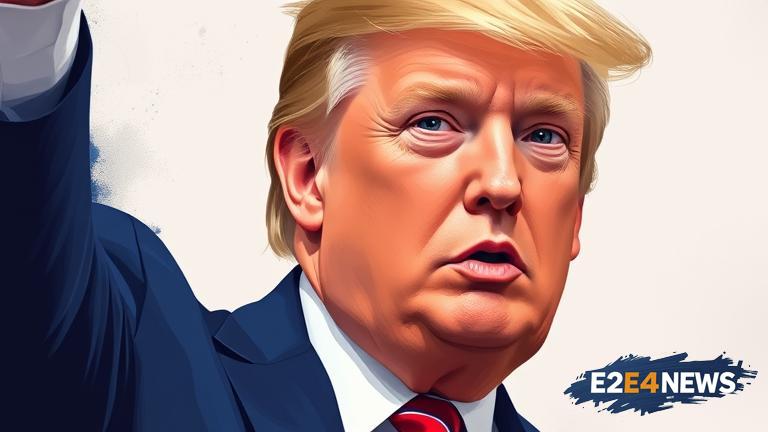The former President of the United States, Donald Trump, has recently stated that unless certain actions are removed, he will impose tariffs on countries that tax American tech giants like Meta, Amazon, and Alphabet. This statement comes as a response to the growing trend of countries imposing digital services taxes on US-based technology companies. Trump’s vow to impose tariffs is seen as a move to protect American businesses and promote fair trade practices. The digital services tax, which is being implemented by several countries, targets tech companies with significant digital presence and revenue. The tax is designed to ensure that these companies contribute to the local economy and pay their fair share of taxes. However, the US government has been critical of this tax, arguing that it unfairly targets American companies. Trump’s threat to impose tariffs is likely to escalate tensions between the US and countries that have implemented or plan to implement the digital services tax. The US has already imposed tariffs on several countries, including France, in response to their digital services tax. The European Union has also been critical of the US response, arguing that the tariffs are unfair and violate international trade agreements. The issue of digital services tax has become a major point of contention between the US and its trading partners. Several countries, including the UK, Australia, and India, have implemented or plan to implement similar taxes. The US tech industry has also been critical of the digital services tax, arguing that it will harm their business and lead to higher costs for consumers. The tax is expected to generate significant revenue for countries that implement it, but it is also likely to lead to trade tensions and potential retaliation from the US. Trump’s vow to impose tariffs is seen as a move to protect American businesses and promote fair trade practices. However, it is also likely to lead to a trade war, which could have significant consequences for the global economy. The US has been a strong advocate for free trade and has been critical of countries that implement protectionist policies. The digital services tax is seen as a protectionist policy by the US, and Trump’s response is likely to be seen as a move to protect American interests. The issue of digital services tax is complex and involves several countries and stakeholders. It is likely to be a major point of contention in the coming months and years. The US tech industry is a significant contributor to the US economy, and any tax that targets these companies is likely to have significant consequences. Trump’s vow to impose tariffs is a clear indication that the US will not tolerate any tax that unfairly targets American businesses. The global economy is already facing significant challenges, and a trade war over digital services tax could have far-reaching consequences. The US and its trading partners need to find a solution to this issue that promotes fair trade practices and does not harm businesses or consumers. The digital services tax is a relatively new concept, and it is still unclear how it will be implemented and enforced. Several countries are still in the process of implementing the tax, and it is likely to be a major point of contention in the coming months and years. The US tech industry is a significant player in the global economy, and any tax that targets these companies is likely to have significant consequences. Trump’s vow to impose tariffs is a clear indication that the US will not tolerate any tax that unfairly targets American businesses. The issue of digital services tax requires a nuanced and multi-faceted approach that takes into account the interests of all stakeholders. It is likely to be a major point of contention in the coming months and years, and it is essential that the US and its trading partners find a solution that promotes fair trade practices and does not harm businesses or consumers.
